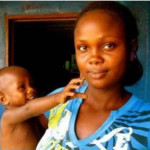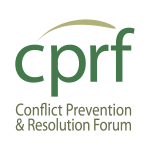Young Liberians Beginning to Realize Their Potential
Less than a decade after Charles Taylor went into exile, Liberia remains a fragile democracy blighted by corruption and a high unemployment rate. Tuesday, September 18, The Washington Network on Children and Armed Conflict, in collaboration with Search for Common Ground, hosted Tom Brownlee and Celeste Visser, researchers from American University, and Mohammed A. Nasser, President of the Federation of Liberian Youth (FLY), in a discussion of the challenges confronting young Liberians today. Brownlee and Visser, part of a six-person multidisciplinary team working in collaboration with SFCG and 24 representatives from donor agencies, worked with youth in Liberia in an effort to understand what potential the future holds for their country.
The project was the first of its kind for SFCG. It was designed as a pilot program to determine whether a quantitative approach to identifying and proposing solutions to social issues could work. Using the lessons learned in Liberia, the researchers hope to use the same strategy in other West African countries. The primary question of the research team, as presented by Brownlee and Visser in their slideshow, was, “Are Liberian youth engaged in this society and to what extent are their perceived and existent priorities aligned with those of international donors operating in post-peace accord Liberia?”
It is a necessary question to ask in order to address the challenges Liberia faces. A bloody civil war in the early 1990’s followed by the ascendance of Charles Taylor and further conflict left the country shell-shocked. As Liberia begins to distance itself from its violent past, the nation’s infrastructure remains weak and corruption, both real and perceived, makes Liberians distrustful towards the government.
The children of war are now faced with the monumental task of determining a peaceful course for their nation’s future. Nasser is determined to make the National Youth Policy, a 121-page document sponsored by FLY outlining a course of action to involve young Liberians in decision-making, a focal point of President Ellen Johnson Sirleaf’s administration. The goal of the initiative is not only to encourage young Liberians to get involved in national decision-making processes but also to promote peace and provide equal opportunities for all Liberians.

Mohammed A. Nasser, President of the Federation of Liberian Youth, listens to Brownlee and Visser present their findings.
Towards that end, both Nasser and the researchers are taking a closer look at the issue of education. The majority of foreign aid allocated to education contributes to the construction of primary schools while the creation of a secondary education system remains, well, secondary. The national literacy rate has risen under Johnson’s presidency but unemployment is estimated at a staggering sixty to seventy percent. Vocational schools are scarce and businesses, rather than training Liberians, import foreign workers already trained in their professions. This strategy, instead of creating jobs, increases feelings of marginalization among Liberian youth, the largest sector of the population.
Foreign aid is not doing enough to alleviate problems specific to young Liberians. As a summary of the researcher’s report states, “the priorities of the international community do not proportionally align with youth priorities.” The majority of money is not directed towards what young Liberians consider most important. While the donations of the international community focus on the stabilization of the country, the youth is being left by the wayside. If Liberia wants to maintain a positive course for the future, the youth need to be directly involved and not relegated to a periphery role in society. This project is an important first step in the direction of a positive future for Liberia.
For more information on the project and a free download of the full report, click here.
Gus Peters is a well-traveled, 22-year-old graduate of Washington University in St. Louis. An avid blogger, he currently serves as SFCG’s Communications Intern.










